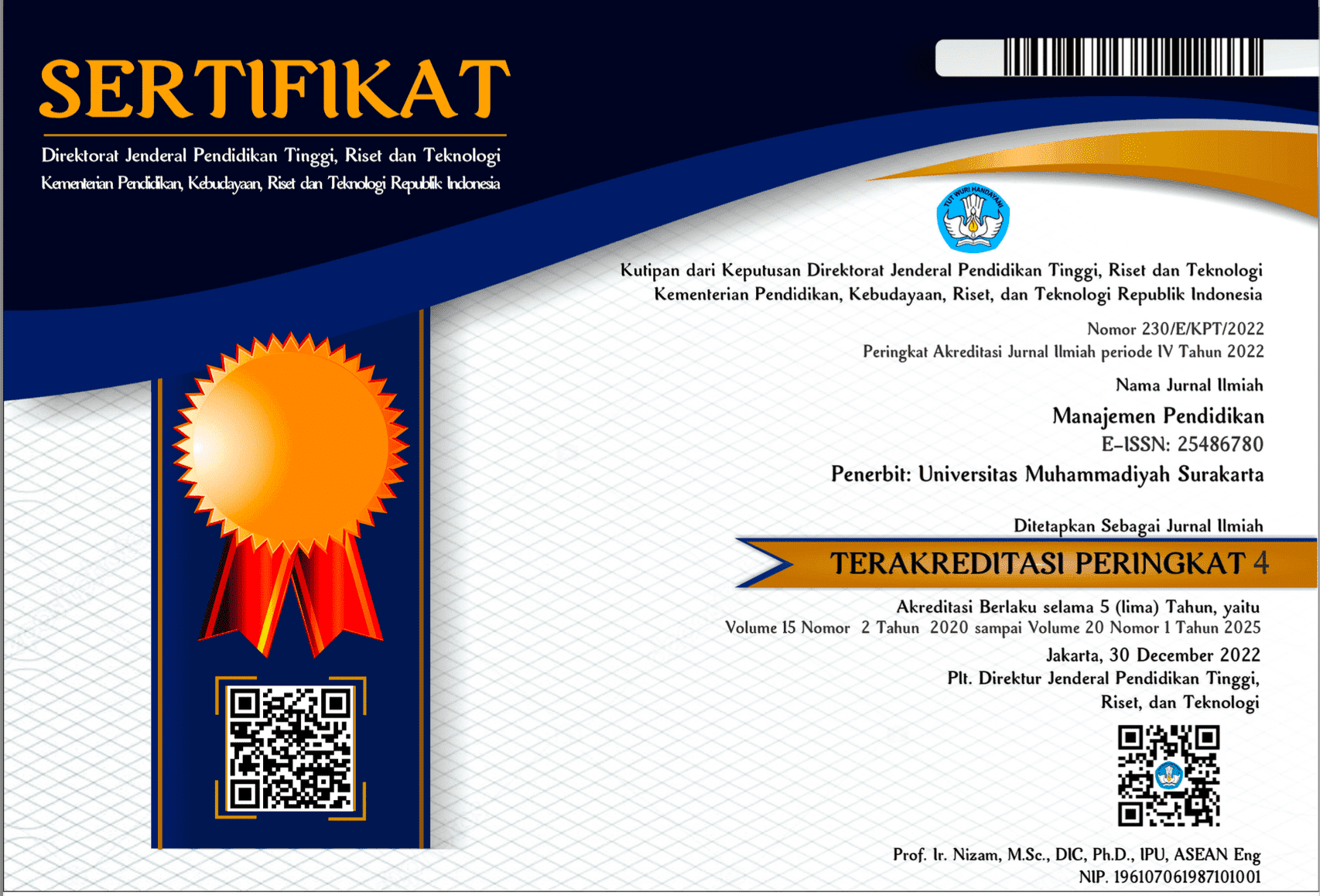Pengembangan Model Peningkatan Kompetensi Profesional Guru Biologi Berbasis Uji Kompetensi Awal (UKA) di Surakarta
Sofyan Anif(1*)(1) Universitas Muhammadiyah Surakarta
(*) Corresponding Author
Abstract
Act No. 14/ 2005 about Teachers and Lecturers and PP (Government
Decree) No 74/2008 about Teachers give an instruction to the government to certify on-going-occupation teachers of all courses in requirements. Based on the survey of Directorate General of PMPTK in 2009/, however, the program of certification couldn’t have developed teachers’ competency and professionalism significantly so that it does not positively take an effect on teachers’ performance development. The study aims to describe a model of biology teachers’ professional competency development based on the early competency test (UKA) in Surakarta. The procedure of research development used R & D model developed by Borg & Gall (2007), and then simplified by Samsudi (2009; 92) into three main stage: 1) introduction, 2) development, and 3) validation for finding a model. The introduction of the study empirically analyzed a model of professional competency development through Biology MGMP, called as factual model nowadays and theoretically analyzed the relevant researchers. It employed a survey approach while the instrument was questionnaires. The respondents or informants with purposive sampling were the heads of LPMP – Provincial Central Java, Education Agency of Regency/Mayor, Principals, the Committees of Biology MGMP, and Biology Teachers. In the stage of development, the researcher formulated an early development; then it was analyzed and matched with the relevant theories for making a model design developed in the form of Figure or Model Figure after validated through focus group discussion (FGD). The results of the study stated that a model of biology teachers’ professional competency based on the early competency test included the following characters: 1) implementing a model began with a competency test; 2) the activities reflected the aspect of continuing professional development (CDP); 3) the supervision was periodically realized by principals or course teachers); 4) giving feed-back for the next development was based on the evaluation; and 5) the speakers of Higher Education with relevant sciences were involved in the activities.
Full Text:
PDFArticle Metrics
Abstract view(s): 794 time(s)PDF: 613 time(s)
Refbacks
- There are currently no refbacks.










